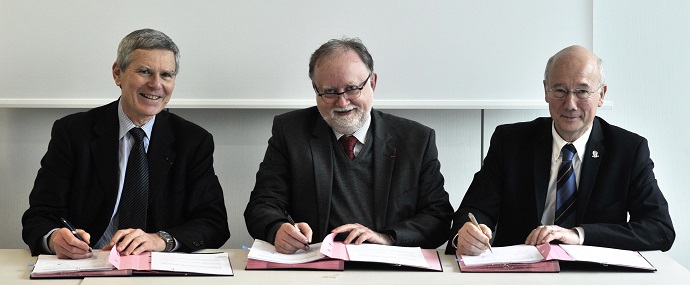March 2, 2015
The joint technology development project is part of a renewable, four-year scientific partnership agreement signed by Thales and École Polytechnique on the 11th of March 2014. For this new project, the partners will build on their complementary expertise and experience in laser technologies to develop a new generation of lasers.
The research programme, known as X-Can, will capitalise on work conducted by École Polytechnique to apply a new scientific concept developed by several of its research teams and by Thales researchers in Palaiseau. The Coherent Amplification Network (CAN) concept is based on the use of an array of fibre lasers for amplification and coherent combination of laser beams, a radically new approach to laser system architectures that is expected to achieve exceptional laser shot characteristics. X-Can aims to overcome all the key scientific and technological barriers to the design and development of an experimental laser demonstrator.
These innovations in laser technology will open up new avenues of scientific research and ultimately offer numerous practical applications including the transmutation of nuclear waste, proton therapy and isotope production for nuclear pharmacology, as well as design solutions for sub-critical nuclear reactors and even ways to clean up orbital debris in space.
Thales' optronics business, a world leader in petawatt-class lasers, expects the cooperation to bring an important breakthrough in optical efficiency, leading to significantly higher performance at lower cost and opening up new applications for laser technology.
The project will be based in part on a recently completed 18-month study financed by the European Commission and conducted for the CERN (European Organization for Nuclear Research) by some of the leading research institutes in France, the United Kingdom and Germany in the field of high-power optical fibre lasers.














